Natural Ways To Repel Garden Pests: Safe & Effective Solutions for a Healthy Garden

If you’ve ever spent hours caring for your garden, you know how frustrating it feels to spot pests making a meal out of your plants. Slugs, beetles, aphids, and caterpillars can turn your thriving garden into a buffet overnight.
I’ve had plenty of long summer afternoons waging war against these little invaders, trying to protect my plants before things got out of hand. If you’re going through the same struggle, trust me—you’re not alone. The good news is there are plenty of ways to keep pests in check without turning your dream garden into a battlefield. Even better, you can do it in a way that’s safe for the environment, your family, pets, helpful insects, and even the wildlife around you.
Sure, chemical sprays may promise fast results, but they usually create more problems than they solve. They can harm pollinators, contaminate the soil, and pose risks to children and pets. Thankfully, you don’t need to rely on toxic products to keep your garden healthy.
In this guide, I’ll share 12 natural, eco-friendly methods to repel garden pests. These solutions are safe, budget-friendly, and designed to work with nature—not against it. Let’s dive in!
Why Go Natural Instead of Chemical?
Before we jump into solutions, let’s see why natural pest control is a smarter choice:
-
🌸 Protect pollinators – Bees, butterflies, and ladybugs thrive without chemical sprays.
-
🌱 Healthier soil – Natural methods keep soil rich with nutrients and microbes.
-
🐾 Safe for kids & pets – No toxic residue left behind.
-
💰 Budget-friendly – Many remedies use common household items.
Choosing natural pest control means creating a thriving, balanced garden ecosystem.
🌿 Comparison Chart: Natural Ways To Repel Garden Pests
| Natural Method | Best Against | How It Works | Safety Level | Cost | Effectiveness ⭐⭐⭐⭐⭐ |
|---|---|---|---|---|---|
| Beneficial Insects 🐞 | Aphids, mites, caterpillars | Predatory insects eat garden pests | Very Safe | Low | ⭐⭐⭐⭐ |
| Companion Planting 🌸 | Aphids, nematodes, beetles | Strong scents repel pests, confuse invaders | Very Safe | Low | ⭐⭐⭐⭐ |
| Neem Oil Spray 🌿 | Whiteflies, aphids, mealybugs | Natural oil coats pests and disrupts growth | Safe | Medium | ⭐⭐⭐⭐⭐ |
| Garlic/Chili Spray 🌶️ | Beetles, caterpillars, ants | Strong odors and tastes repel pests | Safe | Low | ⭐⭐⭐ |
| Handpicking ✋ | Caterpillars, slugs, beetles | Manual removal of visible pests | Very Safe | Free | ⭐⭐⭐ |
| Row Covers/Barriers 🛡️ | Beetles, caterpillars, moths | A physical barrier prevents pests from reaching plants | Very Safe | Medium | ⭐⭐⭐⭐ |
| Diatomaceous Earth ⚪ | Ants, beetles, slugs | Powder dehydrates and kills crawling insects | Safe (food-grade) | Low | ⭐⭐⭐⭐ |
| Essential Oils 🌺 | Ants, aphids, moths, beetles | Strong scents repel pests naturally | Safe | Medium | ⭐⭐⭐ |
| Birds & Frogs 🐦🐸 | Slugs, caterpillars, beetles | Natural predators eat garden pests | Very Safe | Free | ⭐⭐⭐⭐ |
| Soap & Water Spray 🧼 | Aphids, mites, whiteflies | Suffocates soft-bodied insects | Safe | Low | ⭐⭐⭐⭐ |
1. Attract Beneficial Insects
Not all bugs are bad! Some insects eat garden pests for you.

-
Ladybugs → eat aphids and mites
-
Lacewings → snack on caterpillars
-
Parasitic wasps → target tomato hornworms
💡 Tip: Plant dill, fennel, marigolds, and cosmos to invite these natural predators.
2. Companion Planting
Certain plants protect each other from pests when planted in proximity.

-
Basil near tomatoes → keeps hornworms away
-
Marigolds around vegetables → deter aphids
-
Garlic near roses → repels beetles
It’s like building a natural shield for your garden.
3. Homemade Pest Sprays
DIY sprays are easy and effective.

-
Neem oil spray – Eliminates whiteflies, mealybugs, and aphids.
-
Garlic spray – Repels beetles and caterpillars.
-
Pepper spray – Keeps chewing insects away.
Always test on a small leaf before spraying the whole plant.
4. Handpick the Invaders
Yes, it’s old-fashioned—but it works! Inspect your plants early in the morning. Pick off beetles, caterpillars, or slugs and drop them in soapy water.
Great for small gardens where every plant counts.
5. Barriers & Traps
Sometimes the best way is simply blocking pests.
-
Row covers – Protect seedlings from insects.
-
Copper tape – Slugs and snails hate crossing it.
-
Beer traps – Slugs are drawn to beer and drown in shallow dishes.
Cheap, safe, and reusable solutions that get results.
6. Keep It Clean

A messy garden is a pest’s paradise.
-
Remove weeds and dead leaves.
-
Pick up fallen fruit.
-
Rotate crops each season to confuse pests.
A little tidying goes a long way in natural pest prevention.
7. Invite Birds & Frogs

Nature’s cleanup crew loves pests.
-
Add a birdbath to attract pest-eating birds.
-
Keep shallow water dishes for frogs and toads.
-
Provide shelter with shrubs or hedges.
They’ll handle slugs, beetles, and caterpillars for you.
8. Smart Mulching
Mulch keeps weeds down and soil cool. But some mulches also deter pests.
-
Cedar mulch naturally repels ants and moths.
-
Straw mulch creates a dry layer that keeps slugs away.
Just don’t pile mulch against stems—it can cause rot.
9. Diatomaceous Earth
This powder may look harmless, but to insects it’s deadly. Diatomaceous earth (DE) scratches their exoskeletons, causing them to dehydrate.
-
Sprinkle around plant bases.
-
Always use food-grade DE for safety.
10. Rotate Crops
Planting the same crop in the same spot year after year invites pests. Rotate your plants to keep them guessing.
Example: Don’t grow tomatoes in the same bed each season. Switch with lettuce or beans.
11. Essential Oils
Essential oils don’t just smell good—they also repel pests.
-
Peppermint oil → ants & aphids
-
Rosemary oil → beetles & moths
-
Clove oil → fungal problems
Mix with water, spray lightly, and enjoy a pest-free garden that smells amazing.
12. Soap & Water Spray
Soft-bodied insects like aphids and mites can’t survive a soapy rinse. Mix mild soap with water and spray directly on affected leaves.
Safe, simple, and surprisingly effective.
FAQs About Natural Garden Pest Control
1. What pests are most common in home gardens?
Aphids, slugs, snails, caterpillars, beetles, and whiteflies cause the most trouble.
2. Are natural methods as effective as chemicals?
Yes! They may take more consistency, but they’re safer and sustainable long-term.
3. How often should I reapply sprays?
Every 7–10 days or after heavy rain. Always monitor for plant reactions.
4. Do natural pest controls harm bees and butterflies?
Not when used properly. In fact, they help pollinators thrive.
5. Can I mix different pest control methods?
Yes. Combining strategies makes your garden much stronger against pests.
6. Is diatomaceous earth safe around pets?
Yes, if you use food-grade DE. Avoid breathing in the dust while applying.
7. Will essential oils damage plants?
Dilute them first. Always test on a small part of the plant before spraying widely.
8. How can I stop pests from coming back?
Rotate crops, tidy your garden, and build healthy soil to reduce repeat infestations.
9. What’s the easiest method for beginners?
Companion planting and handpicking pests are simple and effective starting points.
10. Do row covers need replacing?
Yes, as plants grow, adjust or replace covers to keep them protected.
Conclusion
Garden pests don’t have to ruin your hard work. By using these natural ways to repel garden pests, you can protect your plants without toxic sprays. Whether you try companion planting, DIY sprays, barriers, or diatomaceous earth, you’ll create a healthier, safer garden.
Remember: start small. Test one or two methods, then expand. Over time, your garden will balance itself, with beneficial insects, birds, and frogs keeping pests in check.
🌿 Final Tip: Don’t fight against nature—work with it. Your plants, pollinators, pets, and even your wallet will thank you.
Want more eco-friendly pest control tips? Bookmark this guide, share it with fellow gardeners, and explore our other posts on organic gardening solutions. A thriving, pest-free, chemical-free garden is just a few steps away!



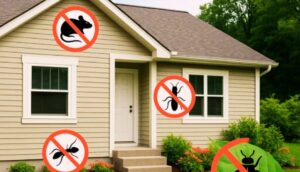
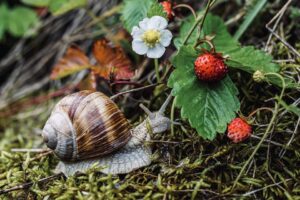
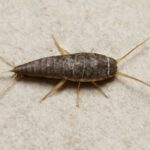
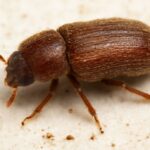
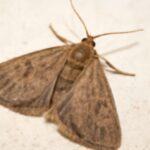
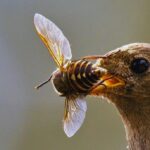

You have written a very interesting article, Norman. My wife and I have planted many a garden in our time and have enjoyed the harvests of all of them. I have one question concerning the growing process of zucchini squash. Not every year we tried to grow zucchini squash did this happen, but most years we had problems with what I call squash bugs. What is your advise in “squash bug” infestations? Thank you again for a well-written article.
Best wishes,
Kent
For squash bug infestations, start by inspecting the undersides of leaves and removing egg clusters by hand to prevent them from hatching. Keep your garden clean by removing plant debris and rotating crops each season to reduce hiding spots. If the problem persists, use neem oil or insecticidal soap as a natural control method to protect your squash plants. I hope this helps.